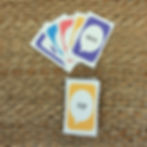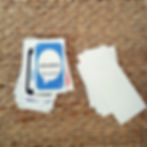disCARD Phonics Card Game
- Oct 18, 2022
- 3 min read
Updated: Oct 13, 2023

Have you tried our disCARD phonics card game yet? There are three free packs in the shop. It is similar to Uno but with fewer cards and rules. The aim of the game is simple — discard all your cards to win!
Uno style games have universal appeal.
The rules are so easy and adaptable that the games can be played with any number of cards. The game of disCARD has its roots in Uno but as the point of playing is to get exposure to sounds-spellings and words already taught, we adjust the rules to suit. We might deal out 5,7, or 9 cards. There are no draw 4 cards as that is too much. Instead, we have pick up 2 cards. An Uno deck is 108 cards. The disCARD decks differ depending on the sound-spellings and words in the pack.
The uncertain reward of games like Uno engages students in active learning.
Games are a great way to motivate and engage reluctant learners. Games are the perfect resource after explicit instruction to sneak in lots of repetition. Many students need the same but different to consolidate new concepts and skills. Games help to showcase the teaching differently. Each time we play a game, students get much-needed exposure.
We play disCARD in sessions and at home for targeted repetition of spellings. We also use the cards for sorting activities and to start word building sessions.
Here is how we play.
This game uses the double letters — ff, ll, ss, zz pack.
First, deal the cards. There are instructions in each pack. I vary the number of cards depending on the student. We deal 4-9 cards, and my student always deals.

Next, decide who goes first and turn over a card to start a discard pile.

The next player can put down if they have a card that is the same colour or has the same number. If not, they pick up a card from the draw pile to see if they can go.
The vowel sounds-spelling and the digraphs packs have the spelling in the corner. The new consonant spellings packs have numbers in the corner.

A player can also go if they have one of the special cards that creates a turn.
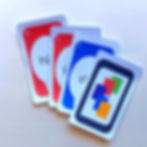
There are six special cards. Pick up two, change the colour, miss a turn, reverse play, change the spelling and wild. The wild card is a new card that is only in the consonant spellings packs. My students are wild about the wild card because it helps if a player can't go with the cards they have. it is a very powerful card. When it is played, the player gets to have another go and change the colour. There are two wild cards to find.

Play continues until one player has discarded all their cards.

Some students will need lots of repetition, others not so much.
Games that contain spellings, words and concepts that students have already had exposure to will ensure a high success rate, which will help engagement and motivation.
Repetition is problematic because some students struggle to see the point of rereading.
I have many students who only want to read a book once, and the push to reread leads to disengagement because they see reading as a chore. Games and short sentence activities can be used to motivate students to reread, and this funnels through to books once they get the hang of it. We have to think in terms of learn it and use it to help fluency thrive, not learn it and park it as is the case if we move on too fast and if the pace of the curriculum doesn’t fit in the time for retrieval practice.
Why play reading games?
Games are brilliant for sneaking in repetition, which is an engaging revision strategy.
Games played after explicit instruction support learning and build skills and knowledge through repetition.
Games are a great activity for home practice as they take little time and can often be easier for parents to manage.
Games promote oral language.
Games make learning fun, which can help students pay attention and focus for longer. Reading games can be targeted support which helps learners see patterns and builds the skill of blending to read.
When we have played, we look at unfamiliar words and define the word with a child-friendly definition before we put the word into a sentence. We use the words for directed word sorts, spelling and sentence activities.
My students always get a pack of cards to play Uno and other games at home in their home practice packet. Another games my students love is Happy Families.
To read about how we play Happy Families, go here

Check out the disCARD packs here
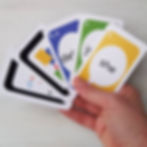
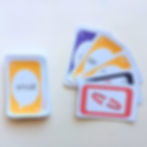
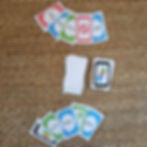

Check out the free packs.
